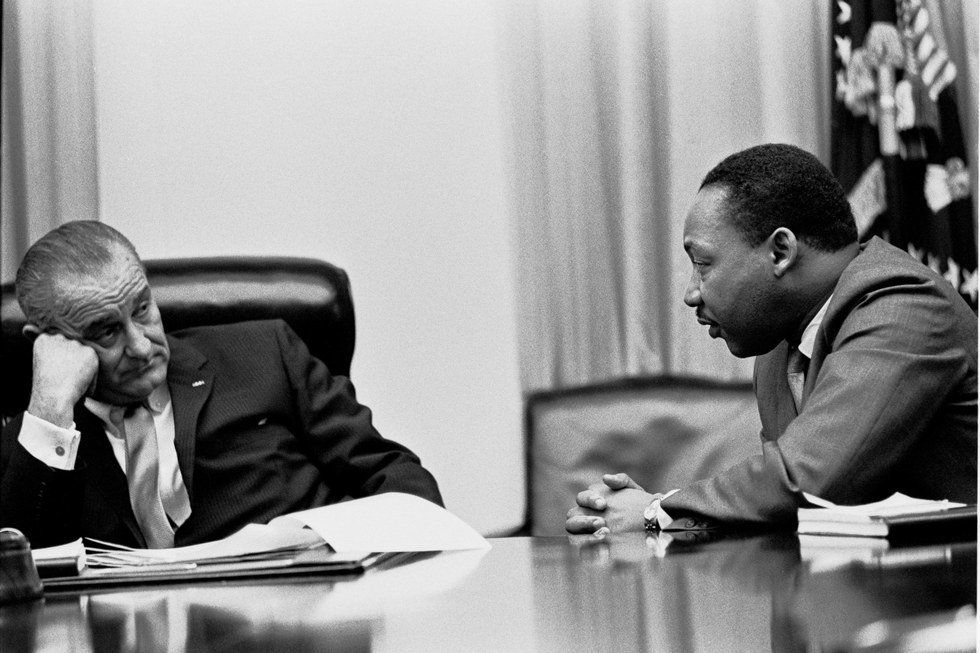This year -- 2016 -- was the first year Washington and Lee University canceled undergraduate classes in honor of Martin Luther King, Jr. Day.
During the second semester of my freshman year, a group of 12 law students self-named "The Committee" posted four demands to the Board of Trustees and the University President regarding campus climate for students of color. They included the following, according to an email sent out by President Ruscio in April 2014:
"1. That the University fully recognize Martin Luther King Jr. Day on the undergraduate campus.
2. That the University stop allowing neo-Confederates to march on campus with Confederate flags on Lee-Jackson Day and to stop allowing these groups to hold programs in Lee Chapel.
3. That the University immediately remove all Confederate flags from its property, including those flags located within Lee Chapel.
4. That the University issue an official apology for the University's participation in chattel slavery and a denunciation of Robert E. Lee's participation in slavery."
As could be guessed, there have been many changes in the short time that I have been a student at W&L. Most have been controversial. In November 2014, seven months after the question was raised, the faculty of W&L voted to cancel classes on MLK Day. For many people in our community, this was seen as the logical extension of our commitment to diversity and inclusion. Others had claimed that the three-day weekend would end up wasted by most students and used as an extra day to party or sleep in.
However, judging by how this year's events went, I would say that the decision to cancel classes was successful in its efforts. The MLK Week events that W&L has always hosted were well-attended this year by not only community members but W&L faculty and students as well. Sunday, we were honored to kick off festivities with a keynote by Dr. Michael Eric Dyson, and on Monday a student-led discussion about diversity and MLK's legacy was overflowing out of the large meeting room it was held in.
Granted, some students were required to go as part of a class, but having an open dialogue about what "diversity" means at W&L was the first step in starting conversations about what "microaggressions" are, what 'checking your privilege' means, and how to best achieve a genuinely more welcoming environment for students from all different backgrounds on our campus. Everyone may have different opinions on these questions, but the sure way to never make progress regarding these issues is by ignoring them. Sharing different perspectives is important because eventually some common ground will come to light.
On the night of MLK Day, we host an annual "Reflections Dinner" where professors, students, and other members of the W&L community are invited to give short reflection speeches on how MLK has impacted their life. This year, the Dean of Students responsible for organizing the event proudly announced that with 212 RSVPs, it was the biggest the event had ever been. However, a little over 200 out of a combined law and undergraduate student body of 2200 means that there is still work to be done.
The inner optimist in me is happy that fewer minority and low-income first-year students feel out of place on our campus, but the realist in me recognizes that unfortunately it is still not a universal experience. As the Student Body President said in his MLK reflection, we should strive to be known as the elite school, not the white elite school -- and that every student who doesn't apply to W&L because of our campus climate should be seen as a loss for everyone here.
We know there's still a lot to change. How? Because a girl cried hysterically over making out with a guy of another race because she was worried that it would prevent her from getting into a certain sorority. Because my friends of color were stopped on their way into a frat party, asking for a student ID and being told "you don't go here" after they clearly saw it. Because my Muslim friend was pushed and flipped off at a party and no one said anything. Because the 'diversity' events we hold on campus tend to have few, if any, white students show up.
Without a doubt, we have come a long way -- but there's still so much left for us to work towards.





















